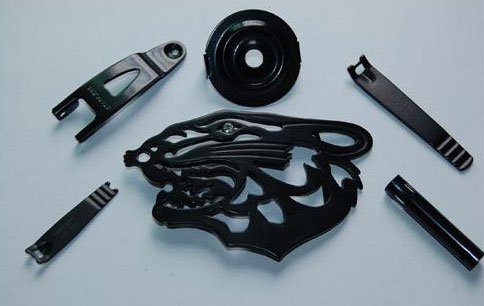
After 30 years of development of high-salt fog resistant cathodic electrophoretic paint SH-2018S two-component cathodic electrophoretic paint, the coating suppliers represented by the United States continue to adopt new technologies and develop new products, making the electrophoretic paint constantly updated. The new generation of cathodic electrophoretic coating shall have the following characteristics:
A. The permeability of the new generation of cathodic electrophoretic coating should be further improved. The higher the penetration rate, the more uniform the film thickness inside the body, thus improving the overall corrosion resistance of the body, reducing the construction voltage, and reducing the amount of paint.
B. Improve edge corrosion resistance. In the process of electrophoresis, some edges and corners are particularly thin due to the electrochemical action of the coating, so corrosion is easy to occur here. The anti-corrosion ability is improved by improving the coating performance.
C. Reduce the ratio of face to base. The ratio of pigment to resin is the ratio of pigment to resin in the coating. Reducing it can increase the content of resin, improve the fluidity of the coating, reduce the settling rate of colloid, reduce the flocculation of pigment and protect the pump, and reduce the material consumption.
D. Reduce the amount of solvent. The higher the solvent content is, the greater the environmental pollution is, which is not conducive to work. Reducing it is beneficial to protect the environment and save investment.
E. Lead-free Wuxi is more environmentally friendly. Lead plays an important role in the anti-corrosion catalysis, passivation and accelerated cross-linking of electrophoretic coatings. However, lead-containing pigments have a great impact on the anti-corrosion of bare steel plates, and lead itself is a highly toxic element, which is severely restricted by environmental protection. The performance of tin is close to that of lead, and the two are usually mixed.
limitations
1. Electrophoresis can only be carried out under the condition of electrification, so it is applicable to the coated material with conductivity (generally metal).
2. Electrophoretic coating process should not be used for the coated material composed of various metals with different electrical conductivity. For example, some electrophoretic coatings will produce allergy to Cu, Sn and other metal ions.
3. The wet film of electrophoretic coating can form a dense film only after baking. Therefore, the coating that can not withstand high temperature can not be applied with electrophoretic coating process.
4. The renewal period of electrophoresis tank bottom is within 6 months, so electrophoresis coating is not suitable for small batch production occasions.
5. The performance of electrophoretic coatings on different substrates is different.
6. It requires strong technical support, especially color electrophoresis, to achieve the expected color effect. If it is not a professional, it will be difficult to mix colors.










